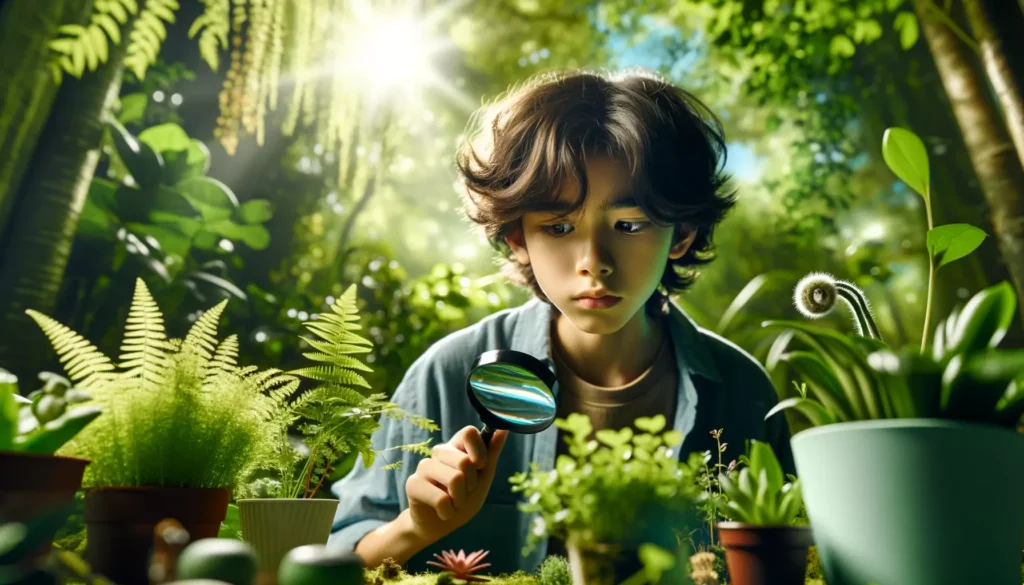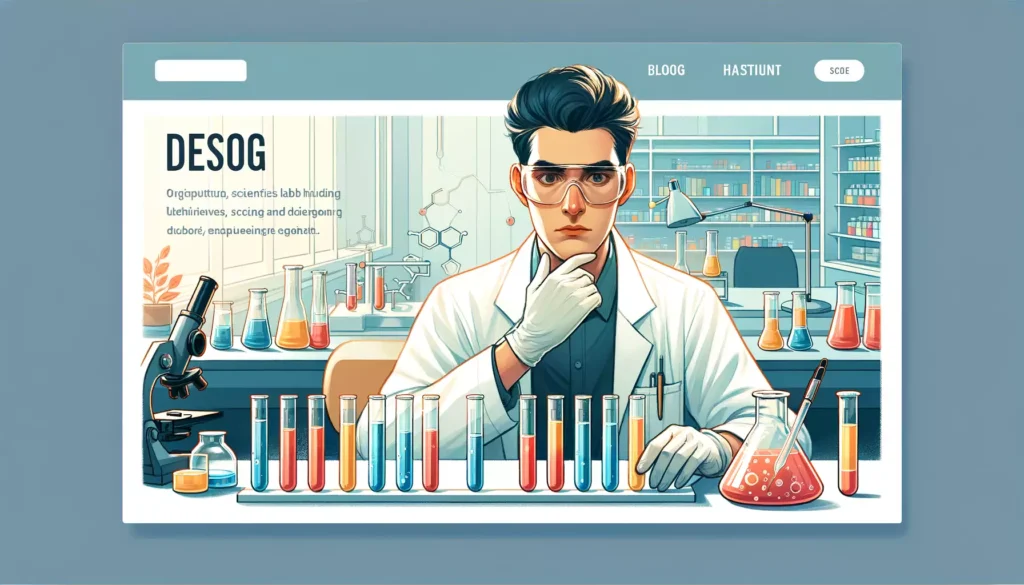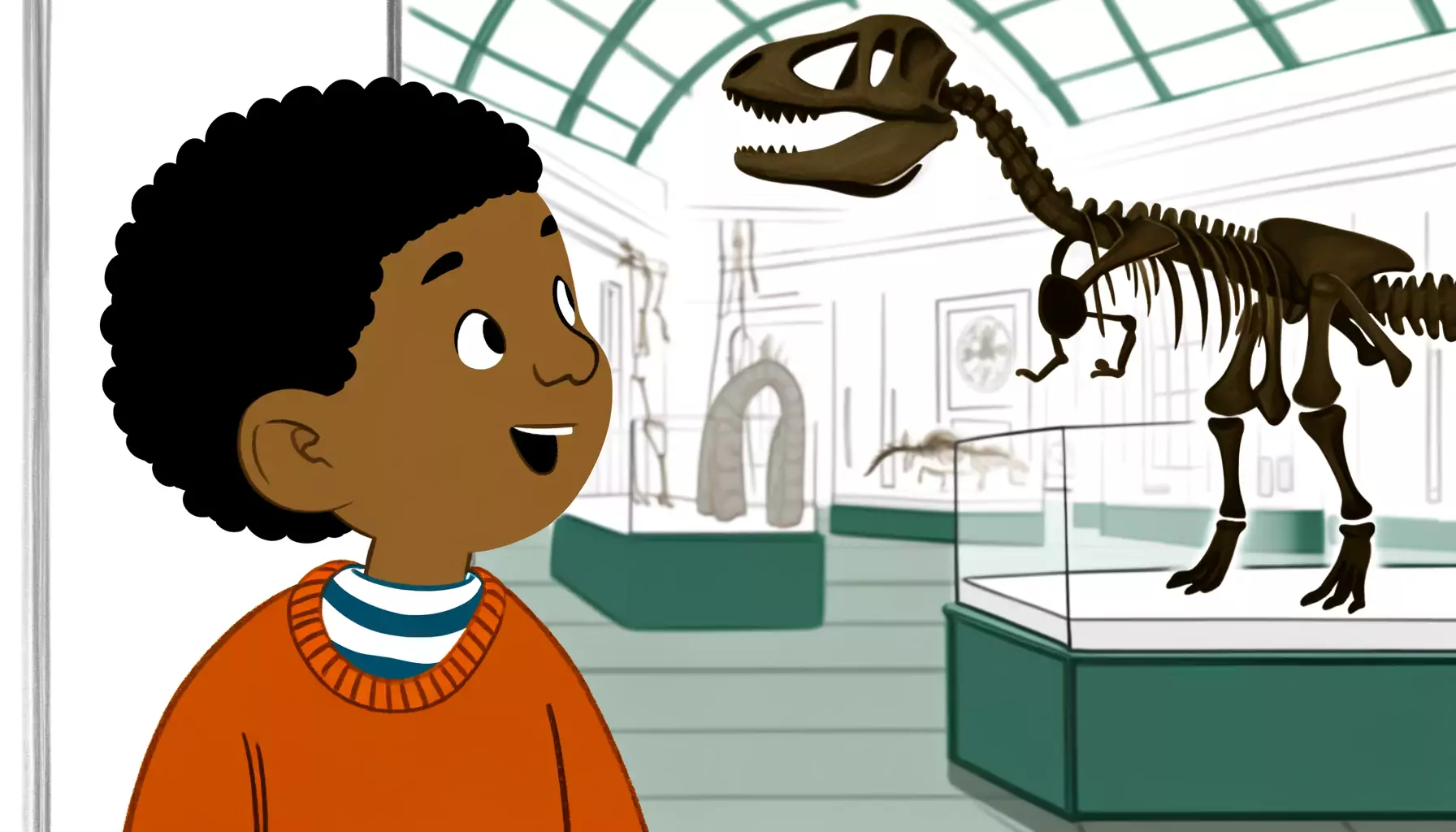The Power of Curiosity
“Curious: How This Power Word Can Make You Better” captures the essence of curiosity—a powerful force that drives discovery, invention, and innovation. Without curiosity, the world would be a much less interesting place. It propels us to explore the unknown, seek out new experiences, and constantly question the status quo, leading to breakthroughs that shape our future and expand our understanding. Embracing curiosity not only enriches our personal lives but also fuels progress in every field of human endeavor.
Curiosity is what led humanity to explore the depths of the ocean and the vast expanse of space. It’s what fuels our desire to learn new things and expand our knowledge.
When we’re curious, we’re more engaged with the world around us. We ask questions, seek out answers, and actively participate in our own lives.
In contrast, when we’re not curious, we become passive observers of our existence. We simply go through the motions without really engaging with the world or exploring all that it has to offer.
How Curiosity Can Make You Better
Curiosity isn’t simply an abstract concept or a feel-good emotion; it can make you a better person in practical ways. By nurturing your innate curiosity, you expand your receptiveness to novel experiences and enhance your potential for personal development.
Firstly, curiosity improves problem-solving skills; it encourages us to look at things from different angles and consider new possibilities that we might otherwise have overlooked.
A curious mindset allows us to approach problems with creativity instead of just relying on tried-and-true solutions.
Secondly, curiosity leads to increased creativity and innovation; When you’re open to new ideas and experiences, you’re more likely to come up with innovative solutions or approaches that others haven’t thought of before.
By actively exploring various alternatives in decision-making situations, rather than simply accepting the initial or widely recognized option, we increase the likelihood of achieving success. This is because we thoroughly evaluate all available choices before concluding. In general, curiosity is a potent force that can propel individual progress and advancement.
By cultivating our sense of curiosity, we open ourselves up to new ideas, experiences, and opportunities for growth. In the next section, we’ll explore the science behind curiosity and how it impacts our brains.

The Benefits of Being Curious
Curiosity is often referred to as a “key to success” because of the many benefits it provides. When we are curious, our minds are open to new possibilities, and we are more likely to engage in creative problem-solving, innovative thinking, and effective decision-making. Here are just a few of the ways that being curious can make you better:
Improved Problem-Solving Skills
Curiosity helps us become better problem-solvers by encouraging us to ask questions and explore different perspectives. When we approach problems with a curious mindset, we are more likely to examine all angles of an issue and consider multiple solutions.
Research has shown that people who score high on measures of curiosity also tend to be better at problem-solving tasks. They are more willing to experiment with different approaches and consider unconventional solutions.
Increased Creativity and Innovation
Curiosity is closely linked to creativity and innovation. When we are curious about something, our minds naturally start exploring different ideas and possibilities. This can lead us down unexpected paths, sparking new insights and inspiring creative solutions.
In some cases, curiosity may even lead us to create something entirely new. For example, many great inventions throughout history were the result of someone asking, “What if?” or “Why not?” These questions sparked the curiosity needed for innovation.
Better Decision-Making Abilities
When we approach decision-making with a curious mindset, we open ourselves up to considering a wider range of options. Instead of relying solely on what we already know or what feels comfortable, we actively seek out new information and perspectives.
This can help us make more informed decisions that take into account all relevant factors. It can also help us avoid falling into rigid thinking patterns or biases that may limit our choices.
Enhanced Learning and Memory Retention
Curiosity also plays a role in learning and memory retention. When we are curious about something, we are more likely to pay attention and engage with the material. This can help us retain information more effectively and remember it for longer periods.
Furthermore, research has shown that curiosity can increase activity in the brain’s reward system, leading to increased motivation and engagement with learning tasks. So if you want to boost your ability to learn and remember new things, cultivating a sense of curiosity is a great place to start.

The Science Behind Curiosity
Curiosity is not just a feeling, it is a biological response in the brain. When we encounter something new or interesting, our brain experiences a chemical reaction that motivates us to learn more.
This response is due to the release of dopamine, a neurotransmitter associated with pleasure and reward. Dopamine is responsible for the feelings of pleasure and satisfaction we experience when we learn something new or solve a problem.
How the Brain Responds to Curiosity
When curiosity strikes, our brains are flooded with dopamine, which creates an intense desire to explore and discover. The prefrontal cortex, which controls decision-making and attention, becomes active as we begin to process new information.
As we continue to explore and learn more about the subject of our curiosity, our limbic system (the part of our brain that processes emotions) becomes active as well.
This process creates a feedback loop where each new bit of information or discovery releases more dopamine in the brain, which motivates us to continue exploring further. This cycle not only leads to deeper insights but also enhances memory retention by linking learning with positive emotions.
The Relationship Between Curiosity and Dopamine
Dopamine plays a significant role in regulating motivation and reward-related behavior in humans.
It helps us form habits based on pleasurable experiences by creating neural pathways that encourage the repetition of such behaviors. When we engage in an activity that piques our curiosity, dopamine acts as a reward mechanism for successful exploration and discovery.
Our brains are wired to seek out novel experiences because they trigger this release of dopamine, making it easier for us to learn from these experiences. Thus, cultivating curiosity can lead to an increase in the number of novel experiences you have on any given day, leading you toward better problem-solving abilities.
How To Cultivate A Curious Mindset
The good news is that curiosity is a trait that can be cultivated. By actively seeking out new experiences, engaging in open-ended exploration, and asking questions to learn more about the world, one can develop a curious mindset.
An excellent way to do this is by engaging in activities that stimulate your sense of wonder and make you question the world around you. These activities can include reading books outside your usual genre, visiting new places, learning a new skill or hobby, or simply exploring nature.
Additionally, practicing mindfulness and being present at the moment can help cultivate curiosity by allowing us to appreciate the details of our surroundings and sparking our desire to learn more about them.
Curiosity isn’t just a passing feeling or something that only some people are born with; it’s an innate biological response rooted in our brain’s reward system.
Understanding how curiosity works at the neural level can help you develop strategies for nurturing it over time, which leads to better problem-solving abilities and increased creativity. So do not shy away from being curious; embrace it as a part of your personality!
Curiosity in Science and Technology: A World of Possibilities
Curiosity has long been at the heart of scientific discovery. From early Greek philosophers to contemporary researchers, curiosity about the world around them has always been the driving force behind scientists.
This curiosity has led to countless breakthroughs in fields ranging from medicine and engineering to physics and biology. In modern times, technological advancements have only further fueled our innate desire to explore and learn about the unknown.
The internet, for example, is a virtually limitless source of information that can satisfy even the most insatiable curiosity.
Meanwhile, innovations like virtual reality technology are making it possible for us to experience new realities and explore uncharted territories without ever leaving our homes.
Whether you’re an aspiring scientist or simply someone curious about how the world works, there has never been a better time to indulge your natural sense of wonder. With so many exciting opportunities available at our fingertips, there’s no telling what discoveries might be waiting just around the corner.
Curiosity in Art and Literature: Inspiring Creativity
Artists and writers have long understood the importance of curiosity when it comes to inspiring creativity. After all, it is often our curiosity about the world that motivates us to create something new, whether it’s a painting that captures a fleeting moment in time or a novel that explores complex themes of love and loss.
For artists and writers alike, cultivating a curious mindset means being open to new experiences and perspectives.
It means taking risks and exploring ideas that might not be immediately apparent or obvious. And perhaps most importantly, it means never losing sight of the childlike wonder that inspires us to create in the first place.
Renowned inventors throughout history, such as Pablo Picasso, Salvador Dalí, Virginia Woolf, and Ernest Hemingway, were not only highly esteemed in their respective fields but also possessed a remarkable sense of curiosity.
So if you’re looking to unlock your creative potential, why not start by tapping into your innate sense of wonder and letting curiosity be your guide?
Curiosity in Business and Entrepreneurship: A Key to Success
In the business world, curiosity has long been recognized as a key ingredient for success. Whether you’re an entrepreneur looking to launch a new venture or a corporate executive seeking innovative solutions to complex problems, cultivating a curious mindset can help you stay ahead of the curve and achieve your goals.
By fostering a sense of curiosity about the world around us, we can identify opportunities that others might overlook.
We can see things from multiple perspectives and think outside the box when it comes to problem-solving. And perhaps most importantly, we can learn from our mistakes and adapt our strategies as needed.
From Steve Jobs’ relentless curiosity about design and innovation to Elon Musk’s unwavering commitment to exploring new frontiers in science and technology, some of the greatest business leaders of our time have also been among the most curious.
So if you’re looking to succeed in today’s fast-paced business landscape, don’t underestimate the power of staying curious and embracing new ideas.

Rarely Known Small Details: Interesting Facts About Curiosity
How the Word “Curious” Evolved Over Time
Did you know that the word “curious” comes from the Latin word “curious,” which means “full of care”? This original meaning is quite different from how we use it today.
Nowadays, being curious often involves being interested in something simply for the sake of learning more about it, without necessarily having any practical application or need for it. But the root meaning of “curious” suggests a deeper level of engagement and responsibility.
Over time, as the word evolved, it took on other connotations as well. In Shakespeare’s time, for example, being curious was associated with nosiness and meddling in other people’s affairs.
Today, we may identify these bad attributes with gossip or probing rather than with curiosity itself. But it’s fascinating to observe how language evolves and adapts throughout time.
How Different Cultures View Curiosity Differently
Curiosity is often viewed as a positive trait in Western cultures—something to be encouraged and celebrated. But not all cultures share this perspective. In some Eastern cultures, for example, curiosity can be seen as disruptive or even disrespectful.
Asking too many questions or challenging authority can be seen as a sign of disobedience rather than intellectual curiosity. However, even within Western culture, there are variations in how curiosity is perceived.
In some contexts, like academia or scientific research, being curious is highly valued and rewarded. But in other contexts, like corporate America, there may be pressure to conform and stick with what’s already been established rather than seek out new ideas or approaches.
The Role of Curiosity in History
Throughout history, curiosity has played an important role in driving progress and innovation. Without curious minds asking questions and pushing boundaries, we might never have discovered electricity, invented the printing press, or unlocked the secrets of DNA. At the same time, curiosity has also been a source of controversy and conflict at times.
Think about Galileo and his radical ideas about the earth revolving around the sun; his curiosity got him into hot water with the church and landed him under house arrest for years. Despite these challenges, curiosity remains an essential part of human nature.
It drives us to explore and learn more about ourselves and our world. And even though only some may appreciate it or understand its value, we should always continue embracing our inner curious selves.
How to Cultivate Your Sense of Curiosity
Curiosity is a natural human instinct, but it can also be cultivated and developed over time. To cultivate your sense of curiosity, start with the basics: ask questions.
Ask questions about everything and anything that crosses your mind. Don’t be afraid to ask what some people may consider “dumb” or “obvious” questions; often, these are the most crucial ones.
Next, practice active listening. Engage in conversations with people you normally wouldn’t talk to and listen intently to what they have to say.
You’ll learn a lot from simply being present at the moment and absorbing new information from others. Additionally, read widely and often on topics that interest you, even if they fall outside of your comfort zone.
Tips for Developing a Curious Mindset
To develop a curious mindset, it is simple: remain open-minded and challenge yourself daily.
Make an effort to expose yourself to new experiences, ideas, and perspectives by attending talks or events outside of your usual interests or social circles. Furthermore, try something new every day; it doesn’t have to be a huge change in routine—it could be as small as trying a different food or changing up your commute route.
This not only helps to keep things fresh but also challenges your brain’s cognitive abilities. Take time for reflection: think deeply about why things are the way they are; question common assumptions; take note of patterns that exist around us all the time that we might not usually notice.
Exercises for boosting your natural sense of wonder
One exercise you can do is called “20 Questions.” Pick any object within reach and start asking questions about it—where did it come from? What’s its history?
Who made it? Who uses it?
This exercise helps train your brain to constantly seek out information and question the world around you. Another exercise is to spend time observing nature in your local area.
Take note of the different species of plants and animals you see, their behaviors, and how they interact with one another. This helps you expand your knowledge base and appreciate the wonders of the world we live in.
How to stay curious throughout your life
Make a conscious effort to continuously learn new things throughout your life.
Attend workshops, take courses, read books, or listen to podcasts on topics that interest you; this not only allows you to gain new knowledge but also keeps your mind agile.
Furthermore, surround yourself with people who inspire curiosity and are open-minded.
Engage in deep conversations about topics that interest both you and those around you. Remember that curiosity is a mindset; it’s not something that can be switched on or off at will.
It requires constant attention and practice. But by remaining open-minded, actively seeking out new experiences and learning opportunities, practicing active listening, and reflecting deeply on the world around us, we can cultivate a lifelong sense of wonder and curiosity.

Conclusion: Embracing Your Inner Curious Self:
Final Thoughts on the Power of Curiosity
Curiosity is not just an innate human trait; it’s a powerful tool that can be harnessed to improve every aspect of our lives. From enhancing creativity to boosting problem-solving skills, curiosity is the driving force behind some of humanity’s greatest achievements.
In today’s fast-paced world, staying curious is more important than ever before. With new technologies emerging every day and complex social and political issues at play, having a sense of wonder and curiosity can help us navigate these challenges with greater ease and grace.
The Importance of Staying Curious in Today’s World
In today’s world, it’s easy to get caught up in the mundane routines of everyday life. We go about our days on autopilot, rarely stopping to question or explore the world around us.
But staying curious can help us break out of these patterns and see the world in a whole new light. By embracing our inner curious selves, we open ourselves up to new experiences and opportunities that we might have otherwise missed.
Whether you’re interested in science, art, or business, staying curious can help you achieve your goals and live a more fulfilling life.
So take some time each day to explore something new or ask questions about things you don’t understand. Let your natural sense of wonder guide you as you navigate this amazing world we live in.
Curiosity may be seen as a trivial trait, but it has multiple benefits that extend beyond the personal level; its effects reach far into society by fostering innovation, and it has led many to discover solutions for different problems that had been considered unsolvable previously—all because someone was willing to ask “what if?”
Everyone, young or old, should embrace curiosity without any fear because it leads to knowledge that creates growth opportunities.






